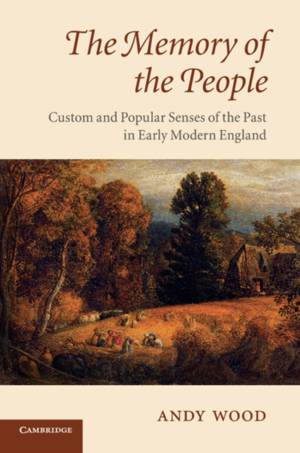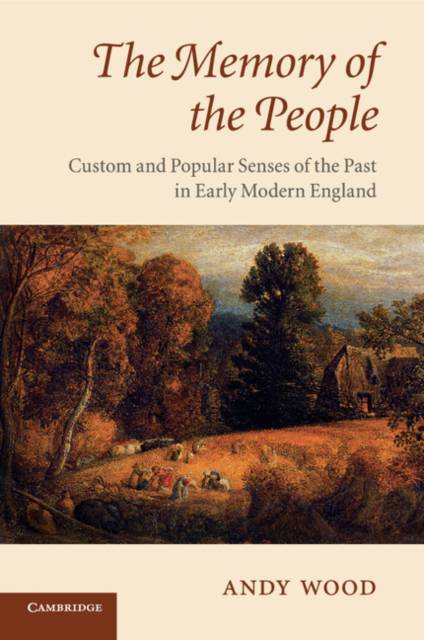
Je cadeautjes zeker op tijd in huis hebben voor de feestdagen? Kom langs in onze winkels en vind het perfecte geschenk!
- Afhalen na 1 uur in een winkel met voorraad
- Gratis thuislevering in België vanaf € 30
- Ruim aanbod met 7 miljoen producten
Je cadeautjes zeker op tijd in huis hebben voor de feestdagen? Kom langs in onze winkels en vind het perfecte geschenk!
- Afhalen na 1 uur in een winkel met voorraad
- Gratis thuislevering in België vanaf € 30
- Ruim aanbod met 7 miljoen producten
Zoeken
The Memory of the People
Custom and Popular Senses of the Past in Early Modern England
Andy Wood
Paperback | Engels
€ 59,45
+ 118 punten
Uitvoering
Omschrijving
Did ordinary people in early modern England have any coherent sense of the past? Andy Wood's pioneering new book charts how popular memory generated a kind of usable past that legitimated claims to rights, space and resources. He explores the genesis of customary law in the medieval period; the politics of popular memory; local identities and traditions; gender and custom; literacy, orality and memory; landscape, space and memory; and the legacy of this cultural world for later generations. Drawing from a wealth of sources ranging from legal proceedings and parochial writings to proverbs and estate papers, he shows how custom formed a body of ideas built up generation after generation from localized patterns of cooperation and conflict. This is a unique account of the intimate connection between landscape, place and identity and of how the poorer and middling sort felt about the world around them.
Specificaties
Betrokkenen
- Auteur(s):
- Uitgeverij:
Inhoud
- Aantal bladzijden:
- 412
- Taal:
- Engels
Eigenschappen
- Productcode (EAN):
- 9780521720670
- Verschijningsdatum:
- 15/08/2013
- Uitvoering:
- Paperback
- Formaat:
- Trade paperback (VS)
- Afmetingen:
- 150 mm x 224 mm
- Gewicht:
- 589 g

Alleen bij Standaard Boekhandel
+ 118 punten op je klantenkaart van Standaard Boekhandel
Beoordelingen
We publiceren alleen reviews die voldoen aan de voorwaarden voor reviews. Bekijk onze voorwaarden voor reviews.









